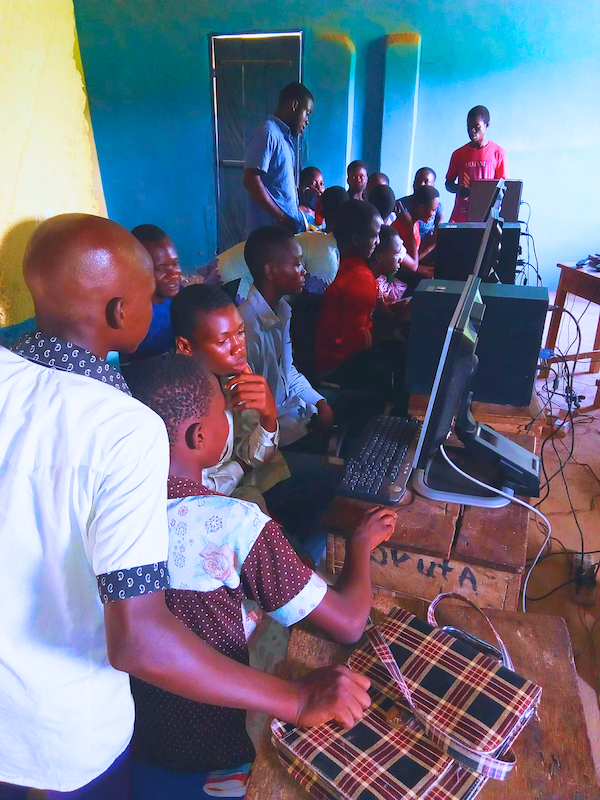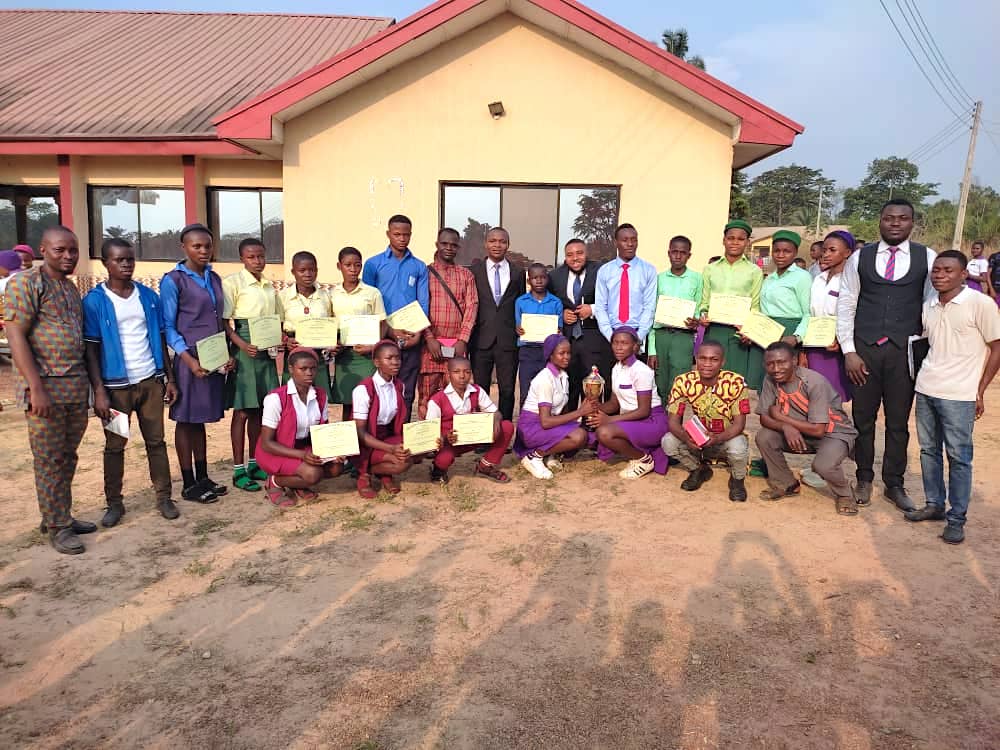Information technology has for long been a critical issue in the human setting, be it urban or rural settlement. One need not wonder why it is so – because information technology helps one not only to relate with one’s immediate environment, but also with the remotest parts of the world. However, even in the midst of all these groundbreaking records of ICT, its inputs in rural communities like *Oshiri are far from being encouraging. Being majorly dominated by people whose exposure is very and often punctuated by noticeable marks of poverty, illiteracy and ignorance; most rural communities lag behind in scooping the benefits presented by ICT in our own era. This makes one to sometimes doubt that ICT can ever be made effective in Oshiri. But the truth remains that Oshiri and other rural communities can benefit equally and immensely from the good sides of ICT – with much efforts, co-operation and strong will put in place by all and sundry. And getting there, first requires identifying the problems that plague the movement of ICT in Oshiri and other rural communities.
To start with, poverty is a prime factor. We need not be told that poverty has dumped rural dwellers in the abyss of underdevelopment and backwardness. Down reality lane, Nigeria boasts of one of the greatest number of poor people in the world. In recent times, the country has been referred to as the poverty capital of the world. The poor population is very susceptible to ignorance and exposed to all manners of sorts. In 1999 when Nigeria was initiated into democracy, a research carried out by World Bank showed that Nigeria’s Human Development Index (HDI) was only 0.46% and over 70% of Nigerians lived below bread line or poverty line. It is very disgraceful and rather unfortunate that the situation has not improved till date. The fact is therefore, in a country like ours overrun by poverty, people care less about their future or anything called ICT. In such places like my own immediate community (Oshiri in Onicha Local Government Area, Ebonyi State), people just live for the day, giving a hoot only about what to eat and stay alive. No time for computer literacy for a hungry rural dweller. Researches have shown time and gain that poverty mode affects the emotional and thinking ability of those involved. This is both physical and social. But is poverty a justifiable reason? Not at all. In fact, boycotting knowledge (like that of ICT), is the surest way to remaining in perpetual poverty. To come out of the shell of poverty and lacks, ICT could be tapped into. It portends not just knowledge but functional knowledge.
In a country like ours overrun by poverty, people care less about their future or anything called ICT.
Again, lack of information is a real challenge facing the advancement of ICT in rural places. There is no gainsaying that for the progress of any society – be it socially, economically, politically or otherwise, information is key. It remains the keystone of developing and executing meaningful and impactful projects. Long story short, information at present, constitutes one of the basic needs of man – after food, shelter and clothing. Since this is so, it is ideal that people should be well-informed across the length and breadth of the society. But it is sickening that it has not been so, especially with regards to rural communities, including mine. Most of these places know little about what is meant by computer, talk more of it applications. And to the few that know, computer applications become a rocket science. The way forward is: people in rural areas, especially the young ones, need to be duly informed not just of what computer is all about, but also of the groundswell of benefits it holds for the present and future. Failure to do so will leave them in technological deformity.
People in rural areas, especially the young ones, need to be duly informed not just of what computer is all about, but also of the groundswell of benefits it holds for the present and future. Failure to do so will leave them in technological deformity.
Lack of political will is also another factor hindering the development of ICT in rural communities. There is no doubting that the government has a big role to play in different facets of advancement– especially the ones needed for human potential development. In the least, government at the grassroots can shoulder the responsibility of bringing local communities to bear in terms of empowering them to acquire basic skills – of which computer literacy is one. To set this in motion, some of the needed equipment could be provided, and people encouraged to participate. But the reverse is the case in this part of the world. Instead of engaging in such projects that have the tendency of touching lives and securing the future, the governing authorities in affected areas focus on false projects, thereby dashing the hopes of the citizenry, and widening the dividing lines in the society. Everything boils down to governmental inefficiency and lack of focus. Non- governmental organisations like IT4YUs have performed very well in this regard – by engaging in the routine of bringing ICT to our doorstep. But if only the government can also add its weight, the journey to getting rid of computer illiteracy in rural areas would be made easier. More attention should be given to what matter, and less to what do not.
Non- governmental organisations like IT4YUs have performed very well in this regard – by engaging in the routine of bringing ICT to our doorstep.
On their own part, the twin sisters of illiteracy and ignorance, have a firm grip on the development of ICT in rural dwellings. They constitute a big cog in the wheels of computer literacy among rural minds. They tower beyond not knowing how to read and write unto lacking knowledge about relevant concepts, harboring stack disbelief about the success of things – which are very common about rural men and women.
Instead of encouraging young minds to venture into agriculture, we should give them the tool to revolutionize it. In addition to all the prospects of ICT in our society, it remains the ultimate key to unlocking our potential as a society in the present era.
*Oshiri is a community in Onicha Local Government Area, Ebonyi State, Nigeria.





What a write up ??
Kudos to u Rita